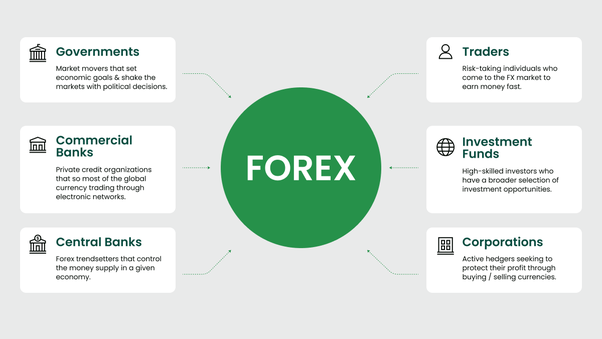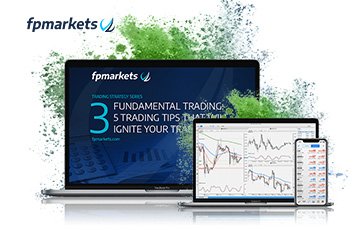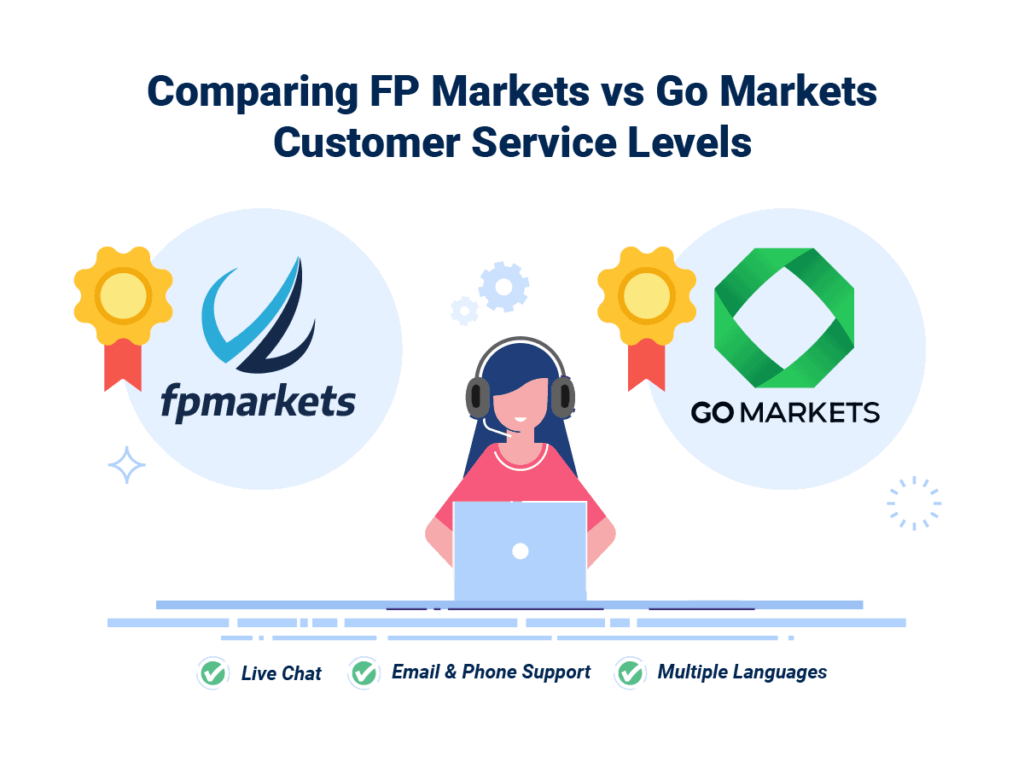The Importance of Verifying the Legitimacy of a Forex Broker
In the dynamic world of forex trading, the legitimacy and reliability of a forex broker are paramount. This is not only a matter of ensuring that your investments are safe but also crucial for receiving fair trading conditions and access to accurate market prices. Here are a few key reasons why verifying the legitimacy of a forex broker is essential: Despite the benefits, concerns regarding FP Markets Scam have surfaced, prompting scrutiny into the allegations and uncovering the truth behind them.
Protection from Scams:
Forex markets attract their fair share of FP Markets Scam due to the significant amount of money involved. Legitimate brokers, credible regulatory bodies license and regulate, providing a layer of protection to traders.
Regulatory Compliance:
A legitimate broker adheres to strict financial standards and operational guidelines imposed by regulatory authorities. This compliance is crucial for ensuring transparency in operations, the safety of client funds through segregated accounts, and fair resolution of disputes.
Access to Reliable Market Conditions:
Legitimate brokers provide access to real-time market prices and execute trades at these prices, ensuring that traders can operate under fair market conditions without manipulation.
Support and Resources:
A reputable broker not only provides a secure trading platform but also offers educational resources, customer support, and analytical tools that help traders make informed decisions.
Brief Introduction to FP Markets
FP Markets is a well-established forex and CFD broker that has been serving global traders since 2005. Based in Australia, it operates under the regulation of the Australian Securities and Investments Commission (ASIC) and the Cyprus Securities and Exchange Commission (CySEC), ensuring high standards of broker integrity and operational transparency.
FP Markets offers a broad array of trading instruments, including forex, indices, commodities, cryptocurrencies, and equities, making it a versatile choice for traders. The broker maintains deep liquidity, guaranteeing competitive pricing and low spreads across its trading platforms, including the popular MetaTrader 4 and MetaTrader 5.
FP Markets stands out due to its commitment to providing traders with robust educational resources, comprehensive market analysis, and an exceptional trading environment supported by cutting-edge technology. Such features make it a trustworthy and legitimate option for both new and experienced traders seeking a reliable trading partnership.

Regulatory Oversight and FP Markets
Detailed Overview of FP Markets’ Regulatory Compliance
FP Markets, a prominent player in the forex and CFD brokerage industry, places a strong emphasis on adherence to regulatory standards, which is crucial for maintaining the trust and safety of its client investments. Regulatory compliance ensures that the brokerage operates within legal boundaries and follows best practices that protect traders’ interests.
Stringent Regulatory Standards:
FP Markets complies with rigorous regulatory requirements set by top financial authorities. This compliance is vital to ensure operational transparency, financial integrity, client fund security, and fair trading practices.
Information About the Regulatory Bodies That Oversee Its Operations
Several well-respected financial regulatory bodies regulate FP Markets. Each of these organizations enforces strict guidelines on financial operations, which FP Markets must adhere to in order to maintain its licenses:
Australian Securities and Investments Commission (ASIC):
- Location and Jurisdiction: Australia
- Role: ASIC is one of the leading regulatory bodies in the financial services industry, known for its strict guidelines and enforcement of financial standards. It oversees financial services, markets, and companies to ensure that Australian financial markets are fair and transparent.
- Compliance Requirements: ASIC requires licensed firms to meet stringent capital requirements, implement robust risk management procedures, and ensure regular financial audits. These measures aim to protect market integrity and consumer interests.
- The impact on FP Markets is significant due to its ASIC regulation, which necessitates the provision of regular reports on financial performance, strict adherence to capital requirements, and implementation of procedures that safeguard client funds.
Cyprus Securities and Exchange Commission (CySEC):
- Location and Jurisdiction: Cyprus, with regulation extending to all EU member states under MiFID II (Markets in Financial Instruments Directive).
- CySEC actively supervises the investment services market, conducts inspections on regulated entities, and ensures their compliance with legal guidelines that protect investors.
- Compliance Requirements: CySEC enforces rules on transparency and fair treatment of traders, requiring brokers like FP Markets to operate with integrity and in full compliance with financial regulations. CySEC also mandates brokers to keep clients’ funds in segregated accounts and to participate in the Investor Compensation Fund (ICF), which protects investors if the broker becomes insolvent.
- As a CySEC-regulated broker, FP Markets must uphold compliance with all European financial regulations, providing additional reassurances of its legitimacy and reliability to traders within and beyond the EU.

Historical Overview of FP Markets
Founded in 2005, FP Markets has established itself as a significant player in the global financial services industry, particularly in forex and CFD trading. The company’s history is marked by growth, innovation, and a commitment to providing high-quality trading experiences. Here’s a look at the key milestones and significant changes in its business operations over the years.
Establishment and Early Years
- 2005: Launch of FP Markets
- FP Markets was established in Sydney, Australia, with the aim of creating a client-focused brokerage that offers direct market access to forex, commodities, and equities.
Expansion and Technological Advancements
- 2009: Introduction of CFD Trading
- Expanding beyond forex, FP Markets began offering contracts for difference (CFDs), enhancing its product offerings to include indices, commodities, and later cryptocurrencies.
- 2015: Adoption of MetaTrader 4
- In response to growing client demand for user-friendly and powerful trading platforms, FP Markets adopted MetaTrader 4 (MT4), a leading platform in retail forex trading. This allowed clients to use advanced charting, analytics, and automated trading tools.
Regulatory Enhancements and Global Reach
- 2017: CySEC Regulation
- FP Markets obtained its Cyprus Securities and Exchange Commission (CySEC) license, marking a significant step in its expansion into European markets. This allowed the company to operate within all EU member states under MiFID regulations, broadening its client base in Europe.
Product and Service Innovation
- 2018: Introduction of MetaTrader 5
- Continuing to embrace technological advancements, FP Markets introduced MetaTrader 5 (MT5), offering clients access to additional trading tools, more advanced charting capabilities, and expanded financial instruments.
- 2020: Expansion of Asset Offerings
- FP Markets expanded its range of trading instruments significantly to include over 10,000 stocks, ETFs, and commodities globally, catering to a broader spectrum of investor preferences.
- 2021: Enhanced Educational and Analytical Resources
- Recognizing the need for ongoing trader education and support, FP Markets ramped up its educational resources, offering more webinars, e-books, and free trading courses. It also enhanced its market analysis features, providing clients with timely insights and trading ideas.
Recent Developments
- 2022: Awards and Recognitions
- FP Markets received multiple industry awards, acknowledging its excellence in customer service, innovation in trading technology, and overall reliability as a broker.
- 2023: Sustainability Initiatives
- FP Markets initiated several sustainability and corporate social responsibility (CSR) programs, aiming to align its operations with environmental and social governance (ESG) criteria.

Common Forex Scams Explained
The forex market, due to its vast size and accessibility, can attract various types of scams that prey on new and inexperienced traders. Here’s an overview of some common forex FP Markets Scam and tips on how to identify potential red flags that might suggest fraudulent activity.
Types of Common FP Markets Scam in the Forex Market
Signal Seller FP Markets Scam
- Description: Signal sellers offer daily recommendations on when to buy or sell forex pairs based on their supposedly expert market analysis. They charge a daily, weekly, or monthly fee but often fail to deliver the promised profitable results.
- Red Flags: Requests for fees based on promises of exceptional returns; lack of verifiable trading history or references.
Forex Robot FP Markets Scam
- Description: Forex robots (Expert Advisors) are automated trading software that promises to make profitable trades automatically. While legitimate versions exist, many are FP Markets Scam, programmed to make random trades or to make profits for the creator via hidden fees.
- Red Flags: Guarantees of high profits with little or no financial risk; lack of real, transparent trading results; excessive marketing claims without supportive evidence.
Phony Investment Funds
- Description: These FP Markets Scam involve fund managers requesting traders to invest money in a pooled fund that trades in the forex market. Scammers often abscond with the money instead of investing it.
- Red Flags: Promises of very high returns with little or no risk; no licensing or credentials; lack of clear, detailed reporting on fund performance.
Broker Scams
- Description: Some fraudulent brokers manipulate trading platforms to create unfavorable trading conditions, including delayed order executions, sudden price spikes, and unusually high slippage, making it difficult for traders to earn a profit.
- Red Flags: Not regulated by any reputable financial regulatory authority; consistent problems with trade executions not seen with other brokers; unexpected fees and charges.
How to Identify Potential Red Flags in Forex Trading
Check for Regulatory Compliance
- Action: Ensure that the broker or any other forex service provider is regulated and licensed by a reputable financial authority (e.g., FCA, ASIC, CySEC). Regulatory bodies ensure that companies follow fair trading practices.
Verify Track Record
- Action: Look for audited trading results and testimonials from real clients. Reliable entities should provide access to their performance history and not resist when asked for references.
Read the Fine Print
- Action: Understand the terms and conditions before investing or opening an account. Be wary of companies that do not disclose fees clearly or that have complex withdrawal processes.
Question Unrealistic Promises
- Action: Be skeptical of anyone promising guaranteed returns or no-risk investments. Forex trading involves risk, and no one can guarantee profits.
Seek Professional Advice
- Action: If unsure, consult with financial experts or advisors who are not affiliated with the service you are considering. Independent advice can help validate the legitimacy of the investment.
Educate Yourself
- Action: The more you understand the forex market and trading mechanisms, the harder it is for scammers to deceive you. Take advantage of free educational resources provided by reputable brokers.

Analyzing FP Markets: Scam Accusations and Evidence
When considering a brokerage like FP Markets, which has been operational since 2005, it’s important to assess any accusations of FP Markets Scam critically and examine the available evidence. This helps in understanding the broker’s credibility and trustworthiness. Here’s a structured approach to examining any past or current accusations against FP Markets:
Review of Accusations
Nature of Accusations:
Accusations against forex brokers can vary widely but typically include issues like manipulation of trading platforms, non-payment of funds to traders, hidden fees, or misleading advertising. It’s crucial to identify the specific nature of any accusations against FP Markets.
Sources of Accusations:
- Client Reviews and Testimonials: Examining various platforms such as Forex forums, review sites, and trading community discussions can provide insights. However, it’s essential to differentiate between genuine client experiences and isolated incidents or disgruntled traders who may misinterpret normal market conditions as unfair practices.
- Regulatory Bodies: Any formal complaints or penalties issued by financial regulatory authorities like ASIC or CySEC would be significant. These bodies strictly monitor their licensees and act on any malpractices.
Analysis of Evidence
Verification of Claims:
- Consistency and Frequency: Are the complaints about FP Markets a common theme shared by many users, or are they rare and isolated cases?
- Substantiation: Do the claims have substantial backing in the form of screenshots, recordings, or documented correspondence? Anecdotal evidence without documentation may require further investigation.
- Response from FP Markets: How has FP Markets responded to these accusations? A transparent and proactive approach from the broker can be a positive indicator of their commitment to resolving such issues.
Regulatory Records:
- Check if FP Markets has faced any regulatory fines or sanctions. This information is generally public and can be a solid indicator of whether the accusations have any merit.
Comparative Analysis:
- Comparing FP Markets’ accusations with industry norms and other brokers can also provide context. No broker is immune to complaints, but the nature and handling of these complaints are what set them apart.
Credibility of Claims
Claims against brokers can sometimes be motivated by misunderstandings of market laws and trading conditions, especially:
- Market Volatility: Traders new to forex might not understand how market volatility can affect order execution and pricing.
- Terms and Conditions: Not reading or understanding the broker’s terms and conditions can lead to unexpected situations, which some traders might perceive as FP Markets Scam.

Customer Reviews and Testimonials of FP Markets
When assessing a forex broker like FP Markets, customer reviews and testimonials play a crucial role in understanding the broker’s service quality, reliability, and overall customer satisfaction. Here’s a detailed analysis based on collected customer feedback across various platforms.
Compilation of Customer Reviews and Testimonials
Positive Feedback:
- Reliable Customer Service: Many users commend FP Markets for its responsive and helpful customer service team. Customers appreciate the accessibility and professionalism of support staff, which enhances user experience and trust.
- Robust Trading Platforms: Traders frequently praise the advanced technology and range of platforms offered by FP Markets, including MetaTrader 4, MetaTrader 5, and IRESS. These platforms are noted for their stability, comprehensive tools, and user-friendly interfaces.
- Market Access and Trading Conditions: Customers are generally satisfied with the market access and trading conditions provided by FP Markets. This includes low spreads on the Raw Account and the range of instruments available for trading, which cover forex, commodities, and indices.
- Education and Resources: FP Markets receives positive marks for its extensive educational materials and trading resources, which are beneficial for both new and experienced traders. This content is appreciated for helping clients enhance their trading knowledge and skills.
Negative Feedback:
- Withdrawal Delays: Some users report delays in the withdrawal process. While these are often resolved, they are a point of frustration for some clients.
- Platform Glitches: Occasional technical glitches with trading platforms have been reported, though they seem to be infrequent and quickly addressed by FP Markets’ technical support.
- Account Verification: A few customers have expressed dissatisfaction with the account verification process, finding it cumbersome or slow. This is a common issue across the industry, largely due to regulatory requirements.
Analysis of Overall Customer Satisfaction
Trends and Common Themes:
- High Satisfaction: The majority of customer feedback for FP Markets is positive, with particular praise for customer service and platform functionality. These areas are crucial for trading, suggesting that FP Markets effectively meets the needs of many of its clients.
- Issue Resolution: Negative reviews often highlight the company’s responsiveness to issues, indicating that while problems do arise, efforts are made to address and resolve them promptly.
Reported Issues:
- Resolution Follow-up: In cases where issues were reported, follow-up comments often indicate that FP Markets took steps to address the concerns, suggesting a commitment to customer satisfaction.
- Consistency of Service: Negative experiences, while present, are relatively rare compared to the positive feedback. This indicates that while not perfect, FP Markets offers a reliably good service to most of its users.

FP Markets Compared to Other Brokers
When selecting a forex broker, it’s crucial to compare features, services, and user feedback across different platforms. Here, we’ll examine how FP Markets stacks up against other well-known brokers in the industry, highlighting distinctions that impact trust and reliability.
Comparison of Key Features and Services
Trading Platforms:
- FP Markets: Offers MetaTrader 4, MetaTrader 5, and IRESS. These platforms are widely regarded for their robustness, with advanced charting tools, algorithmic trading support, and comprehensive market analysis capabilities.
- Other Brokers: Most other leading brokers also provide MetaTrader 4 and MetaTrader 5, though not all offer additional platforms like IRESS. The availability of multiple platforms can be a significant advantage for traders looking for flexibility and sophisticated trading tools.
Spreads and Commissions:
- FP Markets: Known for competitive spreads, especially on its Raw Account, which offers spreads from as low as 0.0 pips and commissions of $3 per lot per side.
- Other Brokers: While many brokers offer low spreads on ECN accounts, FP Markets is often highlighted for maintaining some of the most competitive rates in the industry, especially useful for high-volume traders and those employing scalping strategies.
Regulatory Oversight:
- FP Markets: Regulated by ASIC and CySEC, ensuring high standards of financial integrity and consumer protection. These are among the top regulatory authorities globally, enhancing trader trust.
- Other Brokers: Regulation varies significantly among brokers. Those regulated by tier-1 authorities (e.g., FCA, ASIC, CySEC) are generally considered more reliable and safe compared to those regulated by less stringent jurisdictions.
Educational Resources and Customer Support:
- FP Markets: Offers extensive educational resources, including webinars, ebooks, and video tutorials, suitable for both beginners and advanced traders. Customer support is highly rated for responsiveness and expertise.
- Other Brokers: While many brokers invest in trader education and support, the quality and depth of these resources can vary. FP Markets is often commended for the actionable quality of its educational content and the availability of support in multiple languages.
User Feedback and Trust Factors
Customer Satisfaction:
- FP Markets: Generally receives high marks in customer satisfaction, particularly for customer service and the reliability of its trading platforms.
- Other Brokers: Satisfaction levels can fluctuate more significantly with other brokers, especially those with less robust regulatory frameworks or those that have experienced publicized trading outages.
Transparency and Fair Trading:
- FP Markets: Maintains a high level of transparency in terms of pricing and trading conditions, which is frequently acknowledged by users.
- Other Brokers: Transparency is a critical trust factor that varies across the industry. Brokers with hidden fees or unclear contract conditions tend to receive more negative feedback.

Steps to Ensure Safety When Trading with FP Markets
Trading in the forex market can be both rewarding and risky. Here are practical steps and tips to ensure safety when trading with FP Markets, emphasizing secure trading practices and the importance of using secure methods for deposits and withdrawals.
Trading Safely with FP Markets
Educate Yourself Thoroughly
- Tip: Before you begin trading, understand the basics of forex trading, the specificities of the markets you are interested in, and the tools at your disposal. FP Markets offers a range of educational resources, including webinars, e-books, and tutorial videos, which can significantly enhance your trading knowledge.
Use Demo Accounts
- Tip: Start with a demo account to familiarize yourself with the trading platform and to test your trading strategies without any risk. This step is crucial for building your confidence and competence in trade execution.
Implement Risk Management Strategies
- Tip: Employ sound risk management techniques such as setting stop-loss orders and only risking a small percentage of your account on a single trade. This can limit potential losses and help you manage the inherent volatility of forex markets.
Keep Software Updated
- Tip: Ensure that your trading platform and any associated software are kept up to date. Updates often include security enhancements and new features that can improve trading performance and safety.
Monitor Your Accounts Regularly
- Tip: Regularly check your trading account for any unauthorized activity. Setting up alerts for trades, deposits, and withdrawals can help you stay informed of all account movements.
Importance of Using Secure Methods for Deposits and Withdrawals
Choose Reputable Payment Methods
- Tip: Use well-known and secure payment methods for all transactions. FP Markets supports a variety of reputable options including bank wire transfers, credit cards, and e-wallets like PayPal, which provide additional security layers.
Verify All Transactions
- Tip: Double-check the details of every transaction, especially for withdrawals. Be aware of the typical processing times for each method and raise any discrepancies with customer support immediately.
Protect Sensitive Information
- Tip: Do not share your login details or financial information with anyone. Be cautious of phishing attempts and ensure that your computer and internet connection are secure, especially when trading or performing transactions.
Adhere to Regulatory and Compliance Requirements
- Tip: Ensure compliance with all regulatory requirements set by FP Markets, as these are designed to protect your interests. This includes completing all necessary KYC (Know Your Customer) procedures during account setup.

What to Do If You Encounter a Problem with FP Markets or Any Other Broker
Encountering issues or disputes while trading with a broker like FP Markets can be challenging. Here’s a structured approach on how to handle these situations effectively, including how to contact regulatory bodies and file complaints.
Step-by-Step Guide to Handling Disputes
1: Document the Issue
- Action: Keep detailed records of all communications, transactions, and trading activities related to the issue. Documentation should include dates, times, screenshots, and descriptions of your interactions with the broker.
2: Contact Broker Support
- Action: Reach out to FP Markets’ customer support directly. Most brokers, including FP Markets, provide multiple contact options such as email, phone, and live chat. Clearly explain your issue and provide any relevant documentation to help resolve the dispute.
3: Escalate Within the Brokerage
- Action: If the initial response from customer support does not resolve the issue, request to escalate the matter to a higher authority within the company, such as a support manager or compliance officer. Brokers generally have an internal process for handling such escalations.
4: Review the Broker’s Terms and Conditions
- Action: Review the terms and conditions you agreed to when you opened your account. Understanding these terms can provide clarity on your rights and the broker’s obligations, and may offer insight into the next steps you can take.
Contacting Regulatory Bodies
If direct resolution efforts do not succeed, you may consider filing a formal complaint. Here’s how you can contact regulatory bodies overseeing FP Markets:
Australian Securities and Investments Commission (ASIC)
- Role: Regulates financial services and companies in Australia.
- Contact Information: You can lodge a complaint through ASIC’s official website or through their consumer hotline, details of which are available on their contact page.
Cyprus Securities and Exchange Commission (CySEC)
- Role: Oversees investment activities and regulated entities in Cyprus, with jurisdiction over European activities of brokers.
- Contact Information: CySEC also accepts complaints via their official website, where specific procedures and forms are provided.
Advice on Filing Complaints
Prepare Your Complaint
- Action: Prepare a clear and concise complaint that includes all necessary evidence, documentation, and a timeline of events. State clearly what resolution you expect.
Use Official Channels
- Action: Submit your complaint through the official channels provided by the regulatory bodies. This ensures that your complaint is logged and processed correctly.
Seek Legal Advice
- Action: If the issue involves significant financial implications, consider consulting with a legal professional who specializes in financial services and consumer rights.
Consumer Protection Agencies
- Action: You can also contact local or national consumer protection agencies. These organizations can offer guidance, support, and sometimes mediation services to help resolve disputes with financial institutions.

Conclusion: Is FP Markets a Scam?
Based on a thorough analysis of FP Markets, including its regulatory status, customer feedback, and operational history, here is a summarized conclusion regarding its legitimacy and reliability.
Summary of Findings
Regulatory Compliance
FP Markets is regulated by reputable financial authorities, including the Australian Securities and Investments Commission (ASIC) and the Cyprus Securities and Exchange Commission (CySEC). These regulators are known for their strict oversight and stringent operational standards, which enhance the credibility and security offered by FP Markets.
Customer Feedback
Customer reviews of FP Markets generally highlight a high level of satisfaction regarding customer service, platform stability, and the range of trading tools available. While there are occasional complaints about withdrawal delays and platform glitches, these issues do not seem to indicate systemic problems and are often resolved promptly, as indicated by follow-up customer testimonials.
Operational History
Since its inception in 2005, FP Markets has maintained a solid reputation in the financial services industry. It has received numerous awards for its brokerage services, customer support, and innovative technology, further reinforcing its standing as a reliable broker.
Product and Service Offering
FP Markets offers a wide range of trading instruments and account types, catering to diverse trading needs and styles. The availability of advanced trading platforms like MetaTrader 4, MetaTrader 5, and IRESS, along with competitive spreads and transparent pricing, supports the needs of both novice and experienced traders.
Final Thoughts on the Legitimacy and Reliability of FP Markets
FP Markets does not exhibit the characteristics typical of a FP Markets Scam operation. Instead, it shows all the hallmarks of a legitimate and reliable forex broker:
- Strong Regulatory Framework: The oversight by ASIC and CySEC provides a significant layer of financial security and operational accountability.
- Positive Client Experiences: The majority of user feedback is positive, especially concerning the broker’s customer service and the robustness of its trading platforms.
- Transparency and Professionalism: FP Markets maintains high transparency in its trading operations and continues to invest in technology and client education, which are indicative of a broker committed to the long-term success of its clients.

